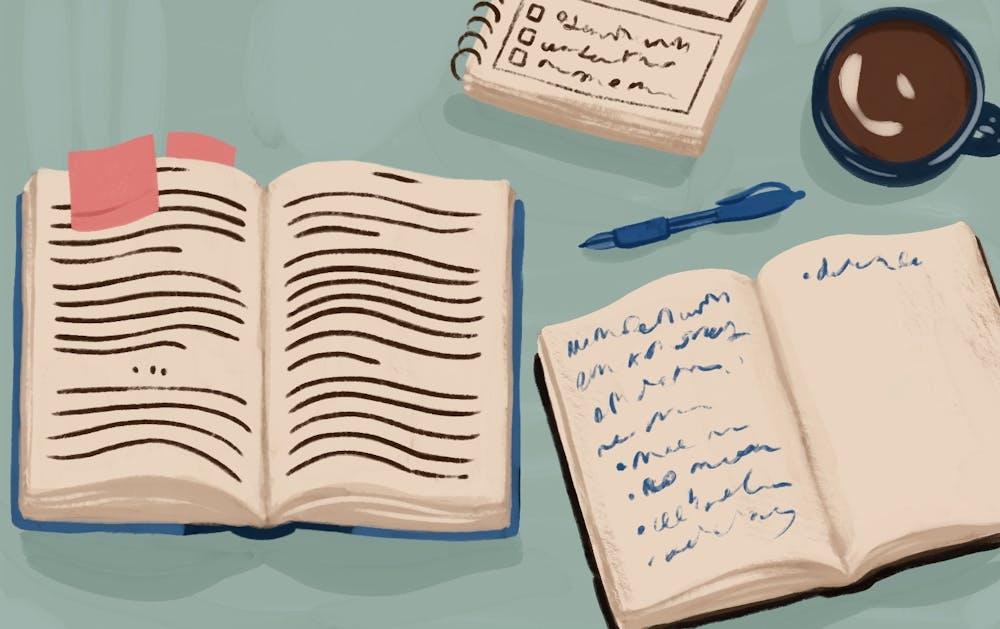Quarantine has made me incredibly unmotivated and not ready to be back in the swing of school life.
Amid all the craziness, I’ve been struggling to keep up with my school routine. So, here is a curated list of some of the best ways to study more effectively.
1. Keeping a planner
When it’s the beginning of the week and I find myself overwhelmed with the cacophony of assignments and labs I have for the week, a planner is an excellent option for keeping everything organized. It also helps you keep an eye out for when you have any significant time crunches for assignments and extra-curricular activities.
I’ve never been particularly known for dealing with stress well. Even if I’m not managing my tasks better, simply having a mental picture of how the week is going to turn out allows me some much-needed clarity.
I love being able to divvy my week up day by day and see how it’s going to turn out. Weeks without this generally end up with me up at 3 a.m. crying with stress headaches to complement my infinite sleep deprivation.
2. Pomodoro technique
The Pomodoro technique, named after those little tomato-shaped 25-minute cooking timers, is a new one for me, and I find it’s a great way to keep focus.
The gist is to study or focus on a task for 25 minutes and then take a five minute break. I usually prefer a 10 minute break because five minutes doesn’t feel like much and when I’m back to the task, my focus is much more rejuvenated when taking 10 minutes.
This technique is great outside of studying as well, whether it be cleaning, meditating, practicing a musical instrument or writing.
An additional benefit of the Pomodoro technique is that it brings a sense of urgency to the task. By adding a timer to the task, we can see that our time is limited and that we only have 25 minutes to get as much work done as possible.
Usually, I spend my time scouring the internet and inevitably wasting time on apps like Facebook and Snapchat. But when I use the Pomodoro technique, I realize how precious my time is.
3. Building a meditation practice
I cannot speak highly enough of this. Building a solid meditation practice was vital for me to overcome my procrastination habits and find the motivation to overcome my seasonal depression.
Consistency can be more important than quantity. Start with as little as two minutes a day, and spend time focusing on your breath.
Getting distracted is absolutely natural — if you’re not getting distracted, you’re not human. When you find yourself getting distracted, simply acknowledge your distraction and bring yourself back to the breath. Don’t beat yourself up!
Calm.com has a really fantastic app with some phenomenal meditations, coupled with various scenes and soundscapes to help you relax.
One significant benefit of meditation practices is its focus on concentration. Meditation is a proven practice to aid your attention and help you zero in on the task.
Couple this with meditation’s built-in stress relief properties, and it is the prime example of an activity that truly aids studying. By focusing on the breath, we can build space for stress to exist, and we allow stress to be relieved.
Often, “what we resist, persists,” and allowing a space for negative feelings and thoughts allows them to drift away.
4. Studying in the same place
Humans are generally “associative” creatures, meaning our brains often work to connect the dots, put two and two together and build our lives based on these assumptions. The key is to play along with this idea and incorporate it into a slick studying routine, like studying in the same place every time.
Places like coffee shops, the Memorial Union, Hayden Library and even your bathroom are essential to priming your brain into that study zone we all thrive off of.
If you choose to go out, do so as safely as you can given the state of the pandemic. But, not going out is not all that bad, either.
Staying at home during the pandemic may actually increase productivity because of this association — whatever gets your gears going and gives you the proper space for some motivation in these very unmotivating times.
5. Make a solid studying playlist
There’s something about music that can really get you in the right mood for any occasion. Studying is no different.
Often, when I’m struggling to focus or bring myself into the present moment of studying, I find a soft, popping playlist can really bring me into the groove of getting my work done.
I like to listen to artists like Fleetwood Mac, Daft Punk and Massive Attack for this. Find artists who give you a sense of focus, familiarity, peace or whatever works for you.
Some more helpful tips:
- Do your most difficult assignment first.
- Study at the same time every day.
- Reward yourself with self-care to incentivize studying.
- Study with friends over Zoom (though this one can, at times, backfire.)
Reach the reporter at cbeal4@asu.edu and follow @beal_camden on Twitter.
Like The State Press on Facebook and follow @statepress on Twitter.




